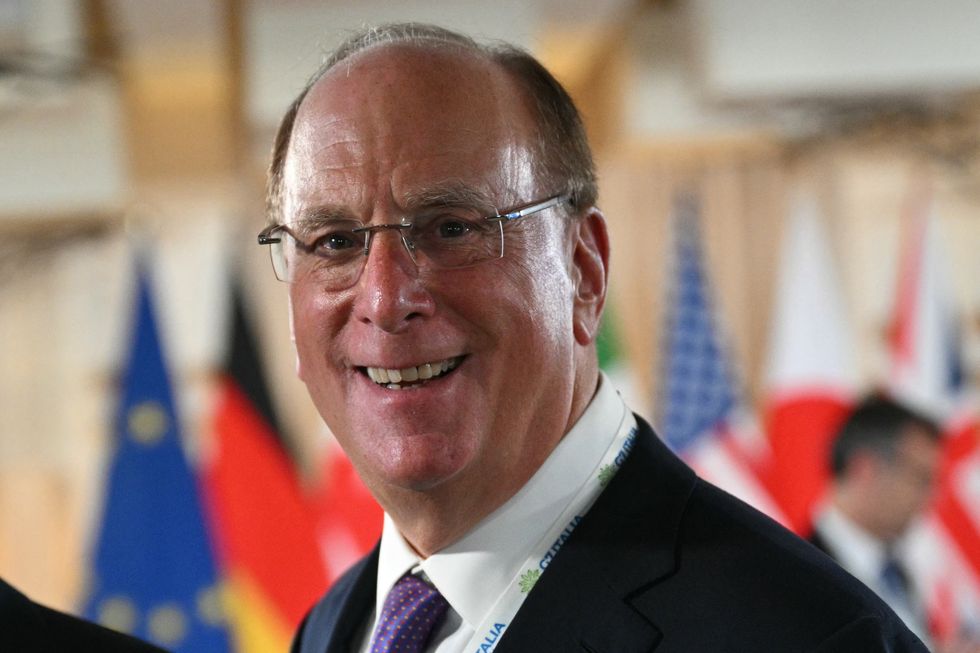Chancellor's ‘tax on jobs’: Six businesses react to Rachel Reeves employers pension tax
Senior business leaders from a number of global companies expressed nervousness about plans for tax rises
The Chancellor has hinted she will increase the rate of national insurance contributions paid by employers
Don't Miss
Most Read
Trending on GB News
The Chancellor has warned businesses will face an increase in employer National Insurance contributions prompting accusations Labour is about to break a manifesto promise.
Rachel Reeves said Labour’s election pledge not to increase National Insurance on “working people” related to employees, as opposed to the sum paid by employers.
The Chancellor used the government’s international investment summit at London’s Guildhall on Monday to warn of tax rises to come in the upcoming October Budget.
She refused to rule out plans to increase employer national insurance, insisting that businesses would understand the need for fiscal stability.

Larry Fink, the chief executive of BlackRock, told Reeves the policies discusses "might become the next real destination for capital"
Getty
Reeves said: “We will stick to the commitments we made in our manifesto.
“But you know there is a £22bn black hole over and above anything we knew about going into the election that we need to fill, and that’s not just a one year, that persists throughout the forecast period.
“So we are going to need to sort of close that gap between what government is spending and bringing in through tax receipts. But we are going to be a government that sticks to our manifesto commitments, including that one [on not raising taxes on working people].”
Larry Fink, the chief executive of BlackRock, told Reeves at a panel event: “I believe the policies that are being discussed with this administration now [are] really opening up our eyes that this might become the next real destination for capital.”
But senior business leaders at the summit from a number of global companies including Google, BlackRock and GlaxoSmithKline expressed nervousness about plans for tax rises.
Sir Nicholas Lyons, chairman of the FTSE 100 insurer Phoenix, warned: “Whenever you think about taxing employers, you’re taxing jobs, you’re taxing enterprise. You have to look at the potential collateral damage.”
Eric Schmidt, the former chief executive of Google also told the prime minister that the UK could benefit from having a “minister of anti-regulation" to cut red tape.
He said: “The cost of capital and the delay is killing you, and furthermore you’re not going to achieve your 2030 energy goal, which is laudable, without fixing this.”
Andrea Rossi, the chief executive of M&G, said he expected the Chancellor’s budget would be “pragmatic” and focused on growth but warned large tax rises would risk “killing the economy”.
He said: “You’re not going to grow the economy if you tax the economy much, much more.”
The head of insurance giant Aviva, Amanda Blanc, said simplifying planning procedures was key.
LATEST FROM MEMBERSHIP:
Blanc explained: “We can commit to doing projects but if you can’t get the planning permission you could be sitting with a project for two to three years where you’ve got money ready to go.”
Finally, Tom Selby, of pension advisers AJ Bell, said: “This would effectively be a tax on businesses and there are a number of options open to those businesses to deal with that extra cost.
“They could adjust remuneration deals, for example by scaling back pay awards or reducing pension contributions, or both.
“Contracts may prevent immediate reductions in pension contributions but you’d naturally expect firms to review the generosity of pension arrangements if the cost of those arrangements became more expensive.”







